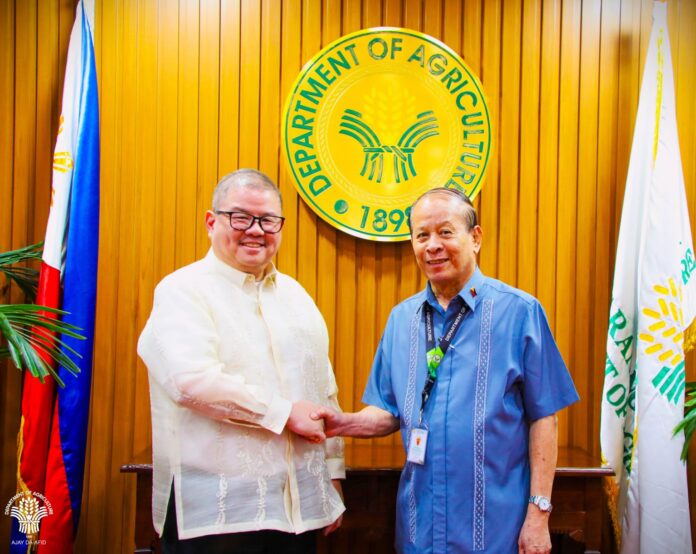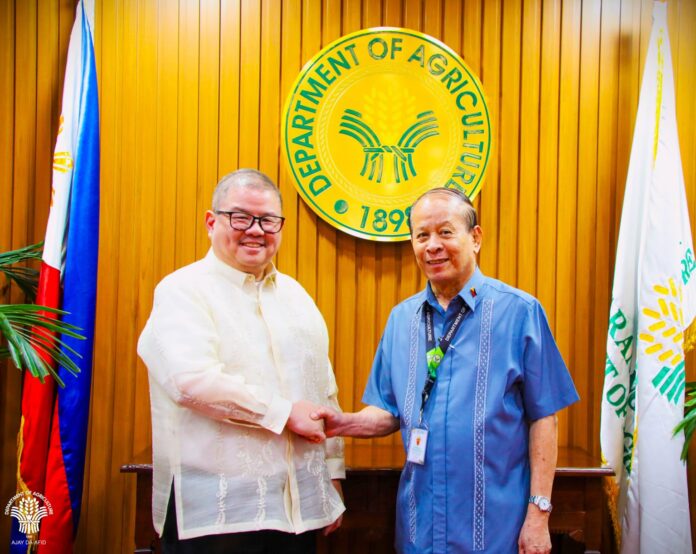Unyon ng mga Manggagawa sa Agrikultura (UMA) yesterday questioned Ferdinand Marcos Jr.’s appointment of fishing tycoon Francisco Tiu Laurel Jr. to the Department of Agriculture (DA) as its new secretary.
According to the federation, to say that Marcos Jr. “appointed” the President of the Frabelle Group to his cabinet position was erroneous. The accurate way to describe the situation was Marcos Jr. “sold” it to him — for P50 million in campaign donations.
“Ito ang tanging credential ni Sec. Tiu Laurel sa agrikultura, marunong siyang magpunla,” complained UMA acting chairperson Ariel ‘Ka Ayik’ Casilao. “Punla ang donasyong P20 milyon kay Marcos, at P30 milyon naman sa Partido Federal ng Pilipinas.”
Tiu Laurel’s electoral investment had paid off early on. A month into Marcos Jr.’s regime, the businessman already acquired a slot in the agriculture group of the President’s Private Sector Advisory Council — for which he had nothing to show for.
UMA had been among the several peasant groups who had demanded the President to step down from the DA. But he should be replaced with one with expertise in attaining food sovereignty, not in monetizing the ongoing food crisis.

“Seguridad sa pagkain ang tinututukan ng agri group ng Private Sector Advisory Council. Palpak na nga ang grupo sa nag-iisang tungkulin nito, bakit ipo-promote pa sa kalihim ang isa sa kanila?” wondered the peasant leader.
As a big comprador profiting off the country’s natural resources, the new agriculture secretary was invested not only in the liberalization of the fishing sector for the benefit of his family business whose market extends to Europe and America.
He was also invested in the corporate capture of land, being invested in energy and mining. Moreover, agri-workers worried that, as head honcho of an agri-business, he would allow the corporate plantation system to flourish rather than curb its expansion.
“Dahil negosyo ang pagtingin ni Sec. Tiu Laurel sa pagkain, tubo para sa mga negosyante ang hahabulin niya rito,” worried Ka Ayik. “Pihadong prayoridad nito ang Cavendish, pinya, oil palm at iba pang export crops kaysa bigas at iba pang makakain.”
The federation had consistently raised the alarm on Marcos Jr.’s pursuit of the goal of his predecessor, former President Rodrigo Duterte, to surrender at least 1/5 of the country’s total agricultural lands to agri-corporations to expand their plantations.
This spelled disaster not only for the peasants such expansion would transform into landless agri-workers, paid below-minimum wages for back-breaking work for hours that go beyond the eight-hour workday — but to food security at large.
“Wastong singilin ng mga pesante at iba pang sektor ang burukrata-kapitalismo ng rehimeng Marcos,” concluded UMA. “Nagpipiging ang mga landlord at komprador sa kaniyang administrasyon, pinagkakakitaan ang gutom ng sambayanan!”



